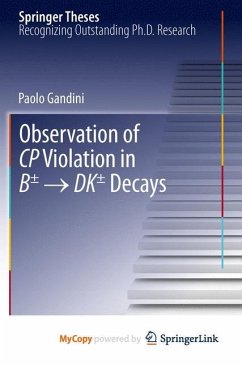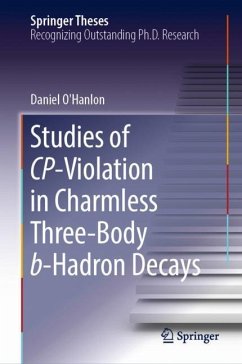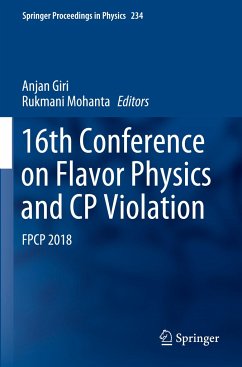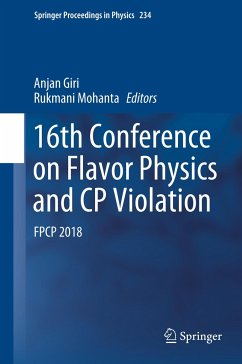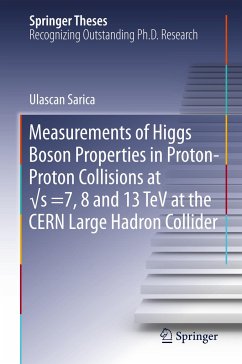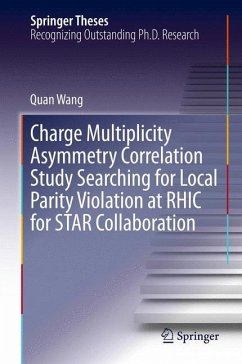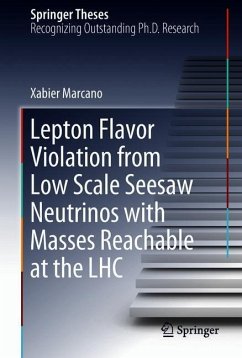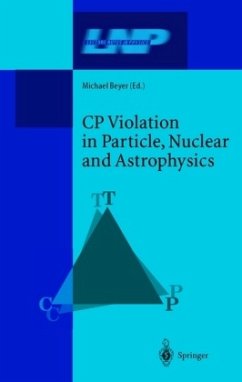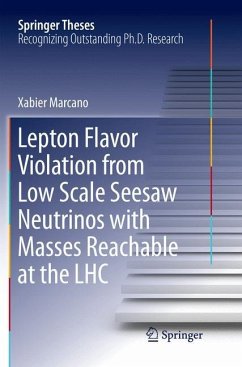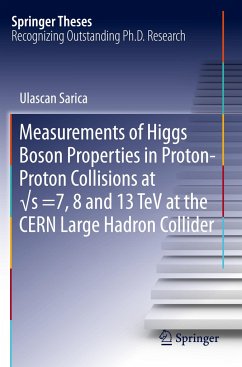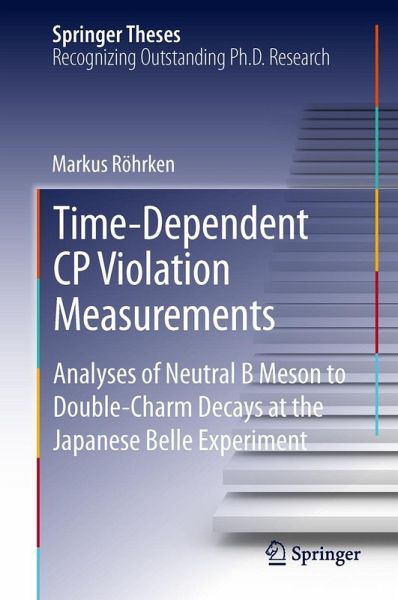
Time-Dependent CP Violation Measurements
Analyses of Neutral B Meson to Double-Charm Decays at the Japanese Belle Experiment
Versandkostenfrei!
Versandfertig in 6-10 Tagen
76,99 €
inkl. MwSt.
Weitere Ausgaben:

PAYBACK Punkte
38 °P sammeln!
This thesis describes a high-quality, high-precision method for the data analysis of an interesting elementary particle reaction. The data was collected at the Japanese B-meson factory KEKB with the Belle detector, one of the most successful large-scale experiments worldwide. CP violation is a subtle quantum effect that makes the world look different when simultaneously left and right and matter and antimatter are exchanged. This being a prerequisite for our own world to have developed from the big bang, there are only a few experimental indications of such effects, and their detection require...
This thesis describes a high-quality, high-precision method for the data analysis of an interesting elementary particle reaction. The data was collected at the Japanese B-meson factory KEKB with the Belle detector, one of the most successful large-scale experiments worldwide. CP violation is a subtle quantum effect that makes the world look different when simultaneously left and right and matter and antimatter are exchanged. This being a prerequisite for our own world to have developed from the big bang, there are only a few experimental indications of such effects, and their detection requires very intricate techniques. The discovery of CP violation in B meson decays garnered Kobayashi and Maskawa, who had predicted these findings as early as 1973, the 2008 Nobel prize in physics. This thesis describes in great detail what are by far the best measurements of branching ratios and CP violation parameters in two special reactions with two charm mesons in the final state. It presents an in-depth but accessible overview of the theory, phenomenology, experimental setup, data collection, Monte Carlo simulations, (blind) statistical data analysis, and systematic uncertainty studies.





